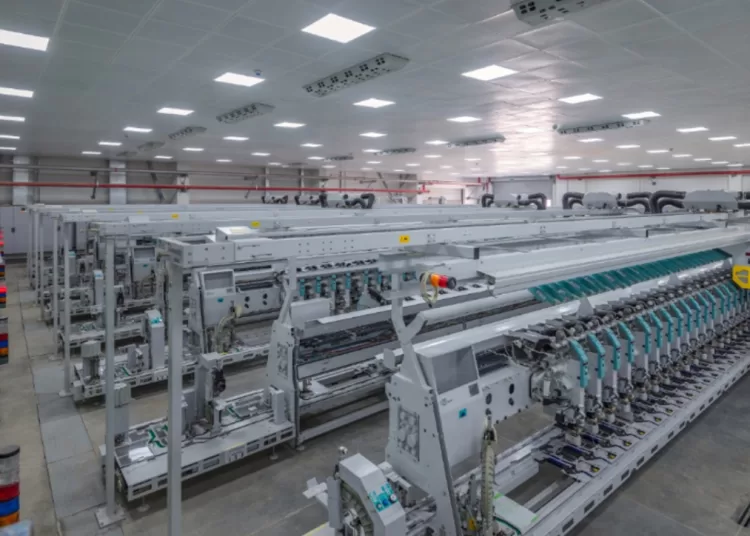Egypt has successfully completed construction of the world’s largest textile factory in El-Mahalla El-Kubra, heralding a transformative era for the nation’s weaving and textiles industry, the Ministry of Public Business Sector announced recently in a press statement.
The factory’s machinery is currently subjected to tests in preparation for its full-scale operation by the end of the year, the statement added.
Bolstered by a substantial investment of LE780 million, the state-of-the-art facility, spanning over 62,000 square metres, targets boosting annual yarn production to 188,000 tonnes and textile output to 198 million metres. Additionally, it aims to manufacture 50 million pieces of clothing annually.
The factory is poised to generate a plethora of employment opportunities. Over 182,000 spinners are slated to find employment within the facility, the statement elaborated.
The establishment of the world’s largest textile factory is part of the State’s broader strategy to rejuvenate the textiles industry, which currently constitutes 3% of the nation’s GDP and 27% of its industrial output, according to government figures.
In 2019, the government launched a LE50-billion plan to promote the textile industry, which includes improving the efficiency of state-owned spinning and weaving factories, under a contract with Werner International Management.
The plan, according to Minister of Public Business Sector Mohamed el-Shemy, aims to more than double the production capacity of its mills to reach an annual 4 million quintals of cotton, up from 1.5 million quintals currently.
The ministry also plans to increase its ready-made clothing and knitwear production capacity from 8 million to 50 million pieces annually.
As part of the plan, the state has already merged nine of its cotton ginning and trading companies into a single entity, and 23 spinning, weaving, dyeing and processing companies into eight companies. Additionally, the state has signed contracts for new machinery and equipment with several major players based in Switzerland, Germany, Italy, France, and Japan, the minister said.
The textile industry development plan also includes setting up a company under the name of the Egyptian Cotton Hub (ECH) to market the sector’s production of yarns and garments. The ECH is managed by foreign marketing experts. It sells two made-in-Egypt textile brands; Nit, whose products have already been exported to Turkey, Denmark, Italy, and the US, and the cheaper brand Mahala, el-Shemy said.
Ahmed Shaker, head of the state-owned Cotton and Textiles Industries Holding Company (CTIHC), said that a larger role for private-sector textile companies with their financing and production capacities would increase the sector’s contribution to gross domestic product (GDP).
The textile sector recorded some $ 2.2 billion in exports last year and the State aims to push that number to $ 8 billion in 2025, Shaker said, adding that Egypt exports textiles to the US, Europe, the African Union, and a number of Arab countries.
“Developing the textile sector is paramount to get the Egyptian economy back on track and boost exports,” Magdy Tolba, chairman of Cairo Cotton Centre and former head of the Export Council of Spinning and Textiles, said.
The sector has advanced over the past few years and is now keeping pace with fashion trends, Tolba added.
However, the sector is struggling with rising material costs as 55 per cent of synthetic fibres are currently imported, he noted.
“Textile production should rely on home-made materials in order to increase the added value of products and increase export revenues,” Tolba stressed.






Discussion about this post